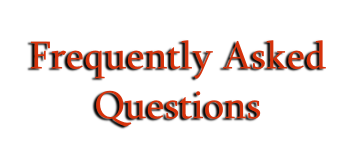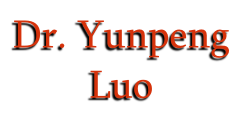Do we accept insurance?
Yes! We accept both health and auto insurance. Most insurance companies offer coverage of acupuncture treatments. The type of coverage will depend on your insurance. Please feel free call at 503-203-8898 to find out if your insurance is covered.What is Acupuncture?
Acupuncture is an essential part of Traditional Chinese Medicine. It is based on ideas and theories formulated over thousands of years. Acupuncture is the insertion of very fine needles (equal to the thickness of a hair) into specific sites chosen on the body according to the guiding principles of Traditional Chinese Medicine. Needles may also be combined with an application of moxibustion, an herbal heat source, or an electric device for increased stimulation. As a medical system, acupuncture is over 2,500 years old. The practice of acupuncture has evolved and developed throughout history. Many new techniques have been developed, and continue to be developed today.Is acupuncture treatment safe?
Yes! All needles used are individually packaged, sterile, and disposed of after single use. Because of the extensive education and training an acupuncturist receives, acupuncture is very safe. "Although tens of millions of acupuncture needles are used annually in the United States, only about 50 cases of complications resulting from acupuncture have been reported in the medical literature over the past 20 years." Birch, et. Al., "Clinical Research on Acupuncture", Journal of Alternative and Complementary Medicine, 2004Is acupuncture painful?
Most people do not find the insertion of the hair thin needles to be painful. What you may feel is a mild dull sensation as the needle touches the point. Acupuncture needles are extremely fine, unlike injection needles, which are thicker, hollow and have a cutting edge.What conditions have you treated with acupuncture and Chinese herbal medicine?
Acupuncture and Chinese herbal medicine are used for a broad range of health issues including chronic and degenerative diseases, acute conditions and pain, and conditions related to the immune system. See our treatments page for more details.Why should I try acupuncture and/or Chinese Herbal Medicine?
Acupuncture and Chinese herbal medicine can relieve the symptoms of your health issue, strengthen your body's immune system and resistance to disease, and restore balance and normal function to your system. Acupuncture also has many beneficial side effects. Patients report that most of the time they:- Feel better (76%)
- Miss fewer work days (71%)
- Get along better with others (69%)
- Have less pain (64%)
- Have more energy (58%)
- Are more focused (58%)
- Can work better (64%)
How does acupuncture work?
Channels called "meridians" run in regular patterns throughout the body and over its surface, nourishing the tissues and organs. Blocking their movement can cause obstructions in the flow of blood, bodily fluids and metabolic waste, creating imbalances in the body. An acupuncturist uses the traditional oriental medical theory of how the body functions, his clinical experience, and modern research to develop the best treatment for you. Needling the acupuncture points can influence the meridian by unblocking the obstructions and re-establishing a healthy flow through the meridians. Since the meridians link with the organs, a treatment can also improve the function of the internal organs. The improved flow and biochemical balance produced by acupuncture results in stimulating the body's natural healing abilities and in promoting physical and emotional well being. Western science has also suggested several theories for how acupuncture works, including (1) condition of electromagnetic signals, (2) activation of opioid systems, and (3) changes in brain chemistry, sensation, and involuntary bodily functions. (NCCAM Research Study, 2002)What is involved in acupuncture diagnosis?
Acupuncture diagnostic procedures center on finding blockages and imbalance of Chi (i.e. energy). The following outline gives a glimpse into primary traditional diagnostic procedures:- Pulse diagnosis: a comprehensive evaluation of the pulses reveals excess, deficiencies, disharmonies of Chi, and what organs are involved
- Observation of the patient: noting color and condition of the tongue, texture and condition of the skin, the hair, the voice, etc. Answers confirm many health issues.
- Interrogation of the patient: seeking a history of the illness, the patient's feelings, lifestyle, diet, etc. all of these, as well as emotional problems may contribute to Chi's imbalance.
- Palpation: feeling for tender acupoints is a reliable diagnostic tool because certain acupoints are related to specific areas and functions of the body, and tenderness may relate to a specific problem.
What is acupuncture treatment like?
You may feel a light sensation resembling a pinch or a mosquito bite when the needle is inserted. Once the needles are placed there may be a slight tingling or numbness in the area while the practitioner is stimulating the point. These are positive signs that the needles are positively affecting the acupuncture point. Usually you will be lying on a comfortable padded table. Often, people become very relaxed and fall into a light sleep during the session.What can I expect when I go to the clinic?
Dr. Luo will ask you a series of questions and do a full health history in order to find out the underlying cause of your health issue or disorder. He will also ask about your symptoms, health and life-style. Afterward, he'll examine your tongue, feel your pulses and palpate various parts of your body. This helps the acupuncturist find patterns that tell which organs and meridians are out of balance. With this information the acupuncturist will identify a pattern of disharmony according to traditional Chinese medicine theory and will make a treatment plan to address it. After your initial interview, you may receive an acupuncture treatment.How should I prepare?
- Fill out the intake form and bring it to you first session.
- Come with any questions you may have. Remember, we are here to help!
- Wear loose, comfortable clothing for easy access to acupuncture points.
- Try not to eat large meals right before or after you visit. Snacks are okay.
- Refrain from overexertion, drugs, or alcohol for at least a few hours after the visit.
- Avoid stressful situations, make time to relax, and be sure to get plenty of water and rest.
How long do treatments take?
Depending on the patient's condition and the treatment plan, an office visit usually lasts from 30 minutes to 1 hour. The needles, once inserted, will usually be left in place for 15 to 45 minutes. Ultimately, the session length depends on the technique and desired results.How many treatments are needed and how often?
The number and frequency of treatments vary because each patient's health issues and response to treatment are unique. Although some people will respond well to only one treatment, more are often necessary. Generally, the longer the patient has had the condition, the longer the course of treatment will be before showing substantial and lasting results. Acupuncture can be scheduled as often as five times a week or as few as once a month. Typically, in China, patients are treated two to five times a week. Although most patients respond favorably after only one or two treatments, some may not respond until the seventh or eighth visit. As symptoms improve, fewer visits are required. A patient should discuss his or her treatment program with the acupuncturist, as each individual case is unique.Where can I find more information about acupuncture and Chinese herbal medicine?
Please check the resources section of our website.

